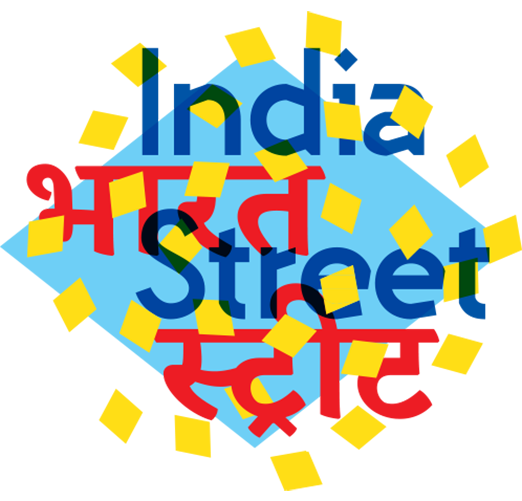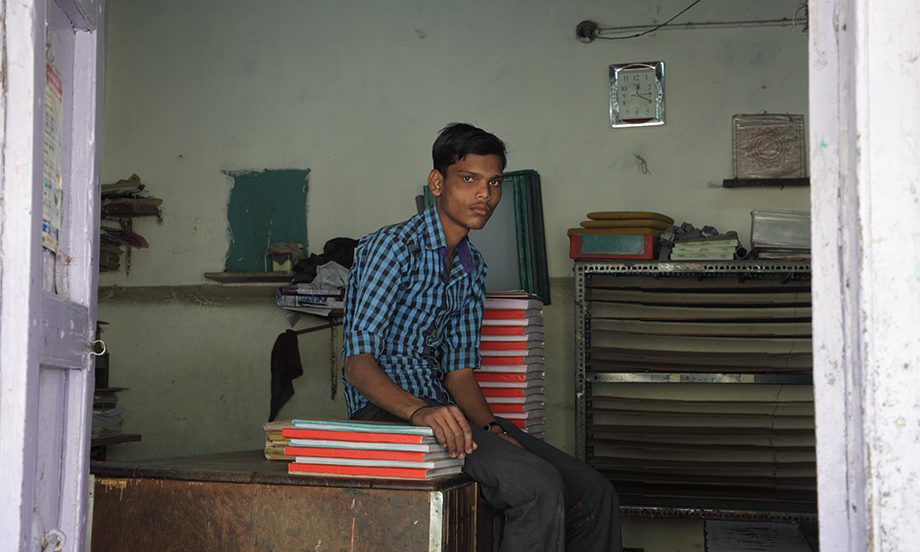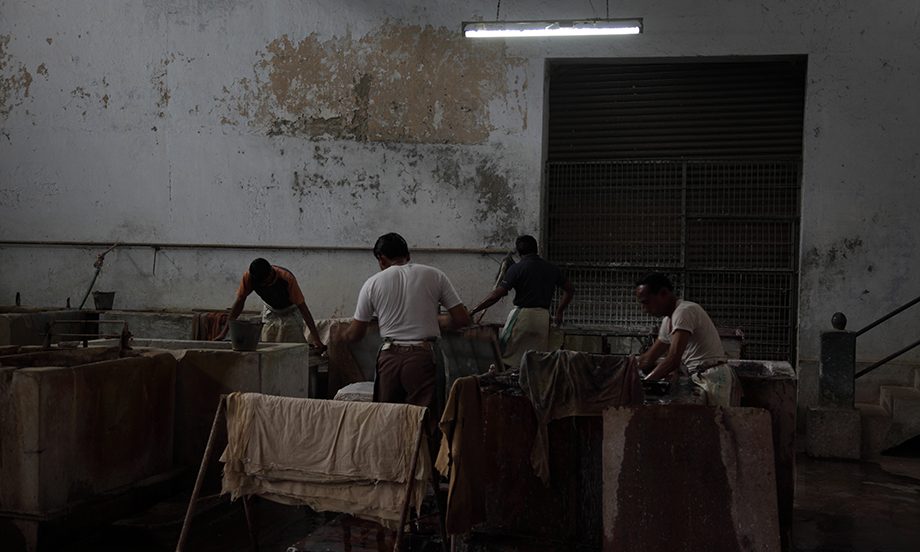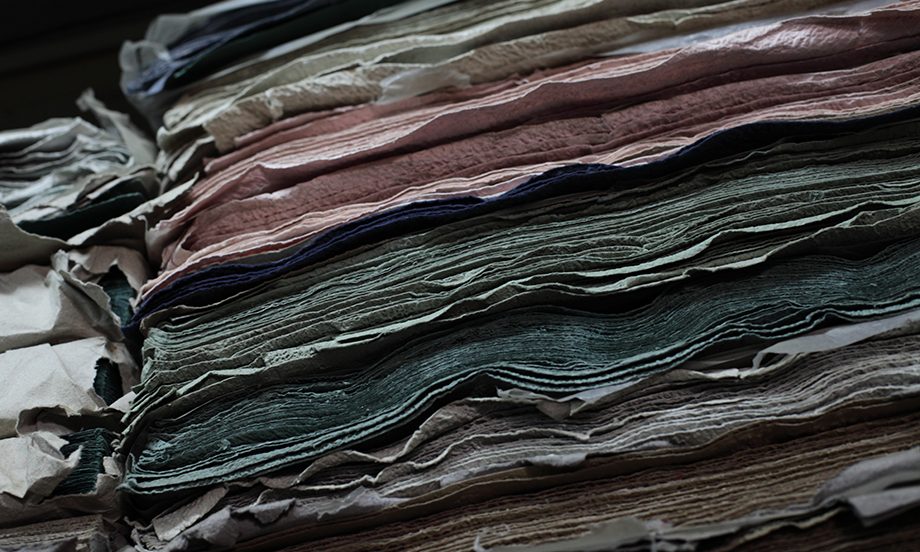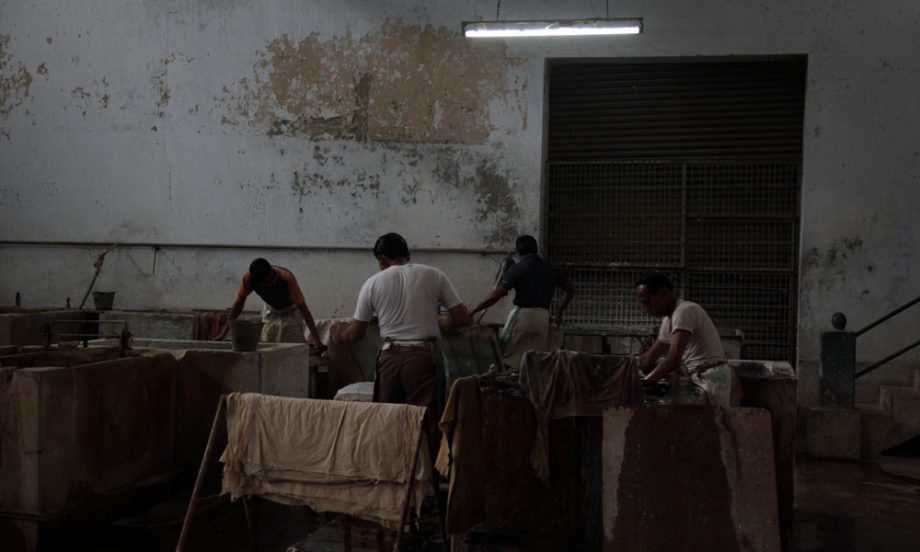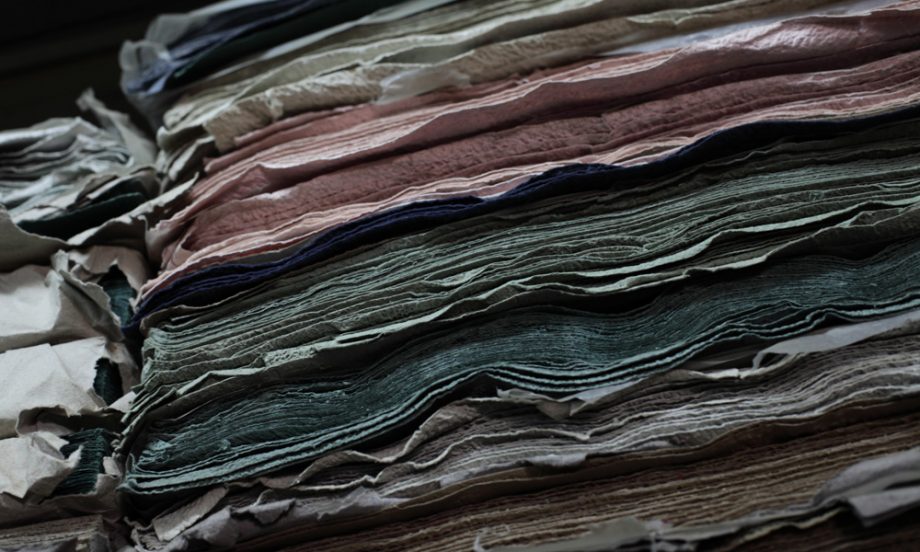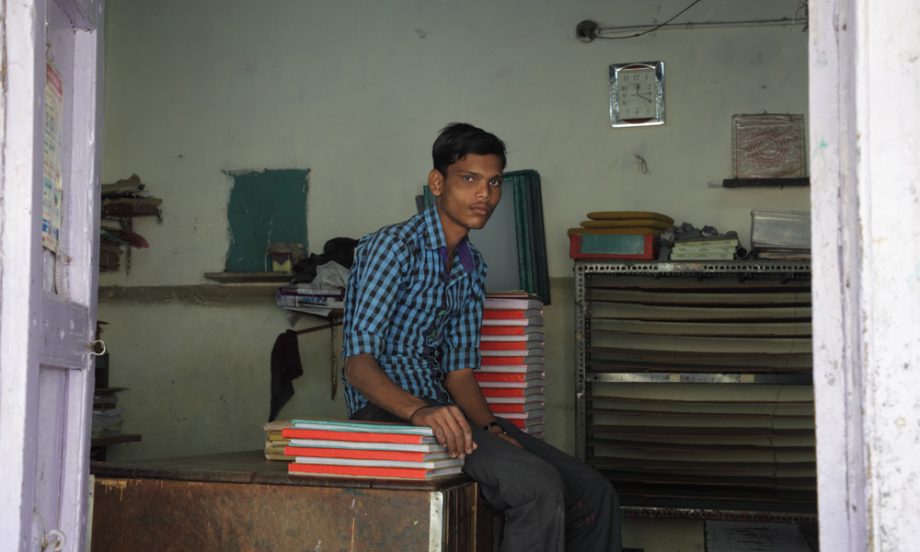Paper Factory
Charlotte Linton
Ahmedabad is home to the Gandhi Ashram – a retreat where Gandhi and Kasturba lived for several years from 1917. On the banks of the river Sabarmati, Gandhi experimented with keeping livestock, and producing Khadi on his own domestic loom.
The Ashram is also the home of Happy Pen a paper factory established in the 1930’s that recycles calico from a local cotton mill. Following Gandhi’s philosophy, the company works transparently recording the accounts for every year since its establishment and mounting them on a large wall chart. It lists information such as input/output, profits, and employee numbers showing the decline in business over its 80-year history. Whilst there is still a lot of interest in handmade paper mechanically produced paper is cheaper and more practical than the handmade.
The paper is made from scraps of cotton shredded coarsely, then finely into confetti-sized pieces. This is soaked in water before being made into sheets of paper, a repetitive, rhythmic operation performed by two workers. Outside the factory are tanks of cotton mulch where fibres and water ferment for eventual use as papier-mâché.
The factory has a shop and trade counter, selling reams of paper in varying thickness and colour. They also produce paper products that may be bound, stitched or screen-printed. All India Street’s packaging and labels have been made with Happy Pen’s 100% recycled cotton paper.
